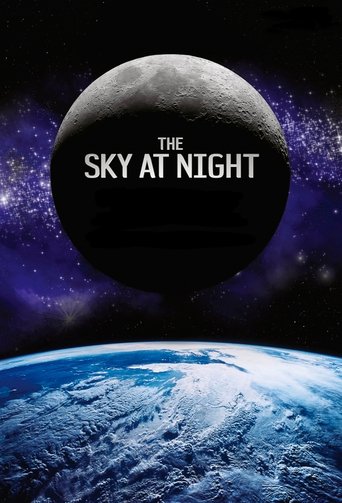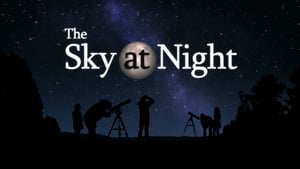
Watch The Sky at Night (1957) Online!
Your monthly journey through the fascinating world of space and astronomy with the latest thinking on what's out there in space and what you can see in the night sky.
-

Episode 1 - Other Solar Systems
Release Date: 2012-01-09We now know there are other solar systems far away in space, but are they like ours and is there life on these strange worlds? Sir Patrick Moore goes on the quest for little green men.
-

Episode 2 - Age of the Infrared
Release Date: 2012-02-13Space telescopes such as Herschel and Spitzer are peering at the dusty, dark cosmos and with their infrared eyes they can see the cold parts of the sky where stars are being born. Sir Patrick Moore discusses why the infrared is full of hidden delights, whilst Dr Chris North talks to Dr Amy Mainzer about NASA's infrared WISE telescope.
-

Episode 3 - Citizen Astronomy
Release Date: 2012-03-04A look at how amateur astronomers can help in the quest for knowledge of the cosmos.
-

Episode 4 - Warp Factor 55
Release Date: 2012-04-02Have you ever dreamed of travelling through space? Sir Patrick Moore takes us on an epic journey to the ends of our known universe, stopping en-route to take in the view. The team engage the warp drive and celebrate 55 years of The Sky at Night - at the speed of light.
-

Episode 5 - Moore's Marathon
Release Date: 2012-05-10The Sky at Night celebrates 55 years with the second of its special programmes. Sir Patrick picked out 55 objects in the April sky and asked viewers to take part in his Moore Marathon. He finds out how everyone got on, with help from the team.
-

Episode 6 - Juice
Release Date: 2012-06-04A European mission called JUICE has been announced which will visit Jupiter and its fascinating moons Europa, Callisto and Ganymede. Sir Patrick Moore finds out why these icy moons may harbour conditions suitable for life, and also has the latest news from the Cassini mission, currently sending back astounding images from Saturn.
-

Episode 7 - Venus and the Midnight Sun
Release Date: 2012-07-02The Sky at Night travels to the Arctic Circle and the archipelago of Svalbard to see the transit of Venus. This astronomical wonder, where the planet Venus passes in front of the sun, is the last one in our lifetime, but as ever the clouds test the team's nerves.
-

Episode 8 - Home-grown Observatories
Release Date: 2012-08-13Up and down the country amateur astronomers are out in their back-garden observatories looking at stars, galaxies and nebulae. The team visits some astronomers on their own turf, to find out what keeps them up late at night.
-

Episode 9 - Curiosity at Mars
Release Date: 2012-09-03The NASA rover, Curiosity, the size of a small car and nuclear-powered, landed on Mars in August and took its first view of the red planet. This ambitious mission hopes to find the building blocks of life as well as study the Martian climate and geology. Sir Patrick Moore discusses what Curiosity will be doing, as well as what to see in the September night sky.
-

Episode 10 - Moore Winter Marathon
Release Date: 2012-10-08Sir Patrick Moore selects celestial objects to observe in the winter night sky and challenges viewers to spot as many as possible. In the second part of the year's Moore Marathon, Sir Patrick has selected two lists to suit astronomers of all abilities - objects that can be seen with the naked eye or binoculars, and more remote ones observable only by telescope.
-

Episode 11 - The Story of Stuff
Release Date: 2012-11-05Sir Patrick Moore, Dr Chris Lintott and Dr Chris North find out what the universe is made of, from the 'dark matter' that shapes our galaxies to the infinitesimally small particles that make up atoms. Pete Lawrence and Paul Abel show how to use a planisphere as a guide to the night sky and what objects can be ticked off on the 'Moore Winter Marathon'.
-

Episode 12 - Mercury and the Moon
Release Date: 2012-12-03The tiny planet Mercury is in the morning sky and Sir Patrick Moore talks about the latest news from Messenger, the spacecraft which is over Mercury at the moment. Mercury is often compared to the moon, which was last visited by man in December 1972. Forty years on, Dr Chris Lintott looks at the legacy of that mission, Apollo 17, and what it has been able to tell us about the moon.
